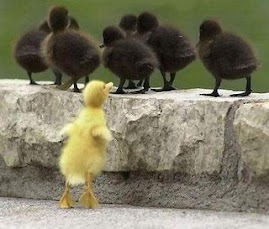Apparently the media world is celebrating the 50th Anniversary of To Kill a Mockingbird (the novel's publication). The book has been a mainstay on high school and college reading lists and is considered by most whites to be a great tableau of anti-racist solidarity. A very different take on this is delivered by a great blog, Stuff White People Do and is worth a read. The post admonishes feel-good liberal whites for warmly embracing what is essentially a racist portrayal of black subjugation, and most whites are clueless to this interpretation. I know I was. White privilege is everywhere and even those of us who think we get it are often blinded by it.
I also read today the KC Star article about reopening the Leon Jordan murder case after 40 years. Leon Jordan was a major civil rights leader and black politician in KC during the 1960s and was a co-founder of the black political club, Freedom, Inc. The news article goes into a great amount of detail about possible motives for his slaying, the political alliances and enemies that arose during that time, and conflicts within the black community itself. It's a level of detail that I never knew and found fascinating in terms of understanding the responses of today's politics in Kansas City. Like the tender reminiscences towards To Kill a Mockingbird, most people gloss over the particulars of what issues were swirling at the time of Mr. Jordan's murder.
For most white people who believe they stand against racism, they really have no clue of the issues involved. Viewing racism as a "bad thing" is akin to being against animal abuse. It is quite superficial. To view racism as something that every white person is accountable for is a much different take on the issue. The lawyer in Mockingbird, forever and indelibly portrayed by Gregory Peck, is a white hero. He stands against the abuse of the accused and is a lone voice of reason in a hateful world. But the novel does not give us anywhere to go with this except that some white people are bad and that we should not treat black people this way. Therein lies the rub.
If white people remain focused on how we should or should not treat black people, then we haven't learned anything and racism still exists. White people never think in terms of anyone "treating" them a certain way. But we feel justified in talking about "treating" black people poorly or well. It's a level of privilege that many whites never fully appreciate, especially in terms of how it affects others.
The Jordan case in KC is riveting because it continues to be assumed that it was black perpetrators that killed this black civil rights leader. But the deep details, as written in this article, suggest that there was a black mafia run by whites that ran the drug trade on the Eastside and had a conflict with Jordan. Jordan also had black political rivals that may have wanted him out of the picture. A further suggestion is that as a civil rights figure, FBI Director Hoover may have wanted him taken out. But the biggest aha for me is that Jordan was a former KC police officer - and it doesn't sound like the police investigated their own on this one. Little mention was made of Jordan's rise to Lt. on the force in a time when racial tensions boiled over in KC.
Regardless of who killed him, and that is a chapter for someone to solve, the magnanimity of this leader is completely lost on most of white Kansas City. Freedom, Inc. is often viewed by whites as a black political club that elects their own as if this is unseemly. Meanwhile the Civic Council and other white political clubs are seen as providing political enlightenment to the rest of the city upon their candidate endorsements. This type of double standard is why there is criticism of To Kill a Mockingbird and why solving the Jordan case is not about civil rights.
White people have a lot to learn and responsibility to take on.
Subscribe to:
Post Comments (Atom)









No comments:
Post a Comment